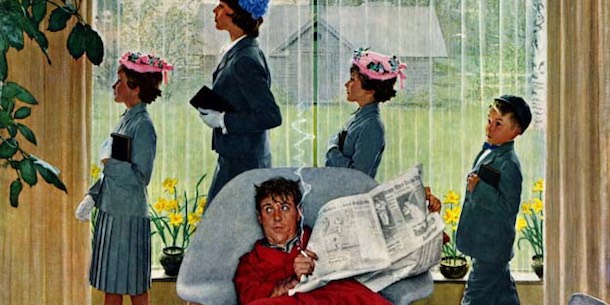Blog Post
Restoring the Lord’s Day Act could unite labour and the faithful
By Jonathon Van Maren
On April 24, 1985, the Supreme Court of Canada struck down the Lord’s Day Act in R v Big M Drug Mart Ltd, nullifying centuries of tradition on the ironic basis that the Act contravened freedom of religion for the irreligious. According to Chief Justice Brian Dickson: “To the extent that it binds all to a sectarian Christian ideal, the Lord’s Day Act works a form of coercion inimical to the spirit of the Charter and the dignity of all non-Christians. It takes religious values rooted in Christian morality and, using the force of the state, translates them into a positive law binding on believers and non-believers alike.”
Leaving aside for a moment the fact that the values of Western civilization itself are “rooted in Christian morality,” this decision did not merely have an impact on religious people, but on everyone. Canadian workers lost the right to a day of rest and gained the right to a day of work or consumption; large shopping chains could open on Sunday and call low-paid employees in for work while small businesses unable to afford it slowly bled revenue; people gained the freedom to buy and eat out and purchase entertainment while those serving them, in many cases, lost the freedom to a mandatory, once-a-week day off with their families.
In our hectic, “24/7” economy, even most Christians have accepted Sunday as a day of shopping and entertainment—there are few that realize this is the norm of decades over against centuries. My maternal grandfather ran a small bakery in Chilliwack, B.C., resolutely remained closed on Sundays, and joined the Canadian Lord’s Day Association. He did his best to patronize the shopping centres that chose to remain closed on Sunday even if it was inconvenient (getting groceries at the IGA instead of Safeway), but few others did the same. He lost customers to those who chose the convenience of the baking section in the grocery stores over his own (much better) bakery.
It is safe to say that the debate over Sabbatarianism is, in our libertine society that sees any restriction as stifling, dead. That is, until Sohrab Ahmari resurrected the discussion on “blue laws” in his essential 2021 book The Unbroken Thread: Discovering the Wisdom of Tradition in an Age of Chaos, which contains a chapter making the powerful case for the Sabbath being a day set apart. In a Twitter exchange last month, I noted that blue laws are very pro-worker and pro-family, and that unions should back them—people don’t exist to serve markets.
Ahmari responded by buttressing the point: “For much of the 19th century, the one arena of Sunday business U.S. Protestants couldn’t shutter was mail delivery. But they finally succeeded — in alliance with the nascent labor movement. You can’t get a better post-liberal realignment issue than: Give Us Our Weekend Back.”
READ THE REST OF THIS COLUMN AT THE INTERIM








